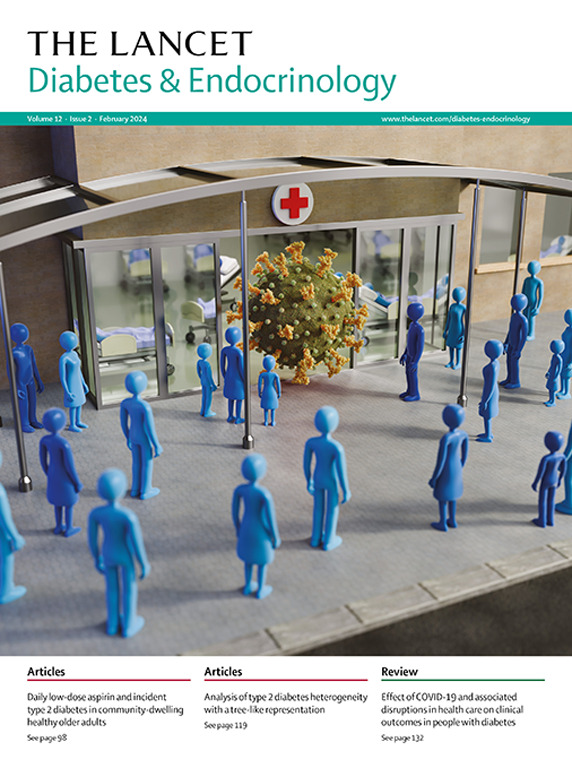Realigning diabetes regimens in older adults: a 4S Pathway to guide simplification and deprescribing strategies
IF 44
1区 医学
Q1 ENDOCRINOLOGY & METABOLISM
引用次数: 0
Abstract
Treating older people with diabetes is challenging due to multiple medical comorbidities that might interfere with patients' ability to perform self-care. Most diabetes guidelines focus on improving glycaemia through addition of medications, but few address strategies to reduce medication burden for older adults—a concept known as deprescribing. Strategies for deprescribing might include stopping high-risk medications, decreasing the dose, or substituting for less harmful agents. Accordingly, glycaemic management strategies for older adults with type 1 and type 2 diabetes not responding to their current regimen require an understanding of how and when to realign therapy to meet patient's current needs, which represents a major clinical practice gap. With the gap in guidance on how to deprescribe or otherwise adjust therapy in older adults with diabetes in mind, the International Geriatric Diabetes Society, an organisation dedicated to improving care of older individuals with diabetes, convened a Deprescribing Consensus Initiative in May, 2023, to discuss Optimization of diabetes treatment regimens in older adults: the role of de-prescribing, de-intensification and simplification of regimens. The recommendations from this group initiative are discussed and described in this Review.求助全文
约1分钟内获得全文
求助全文
来源期刊

The Lancet Diabetes & Endocrinology
ENDOCRINOLOGY & METABOLISM-
CiteScore
61.50
自引率
1.60%
发文量
371
期刊介绍:
The Lancet Diabetes & Endocrinology, an independent journal with a global perspective and strong clinical focus, features original clinical research, expert reviews, news, and opinion pieces in each monthly issue. Covering topics like diabetes, obesity, nutrition, and more, the journal provides insights into clinical advances and practice-changing research worldwide. It welcomes original research advocating change or shedding light on clinical practice, as well as informative reviews on related topics, especially those with global health importance and relevance to low-income and middle-income countries. The journal publishes various content types, including Articles, Reviews, Comments, Correspondence, Health Policy, and Personal Views, along with Series and Commissions aiming to drive positive change in clinical practice and health policy in diabetes and endocrinology.
 求助内容:
求助内容: 应助结果提醒方式:
应助结果提醒方式:


